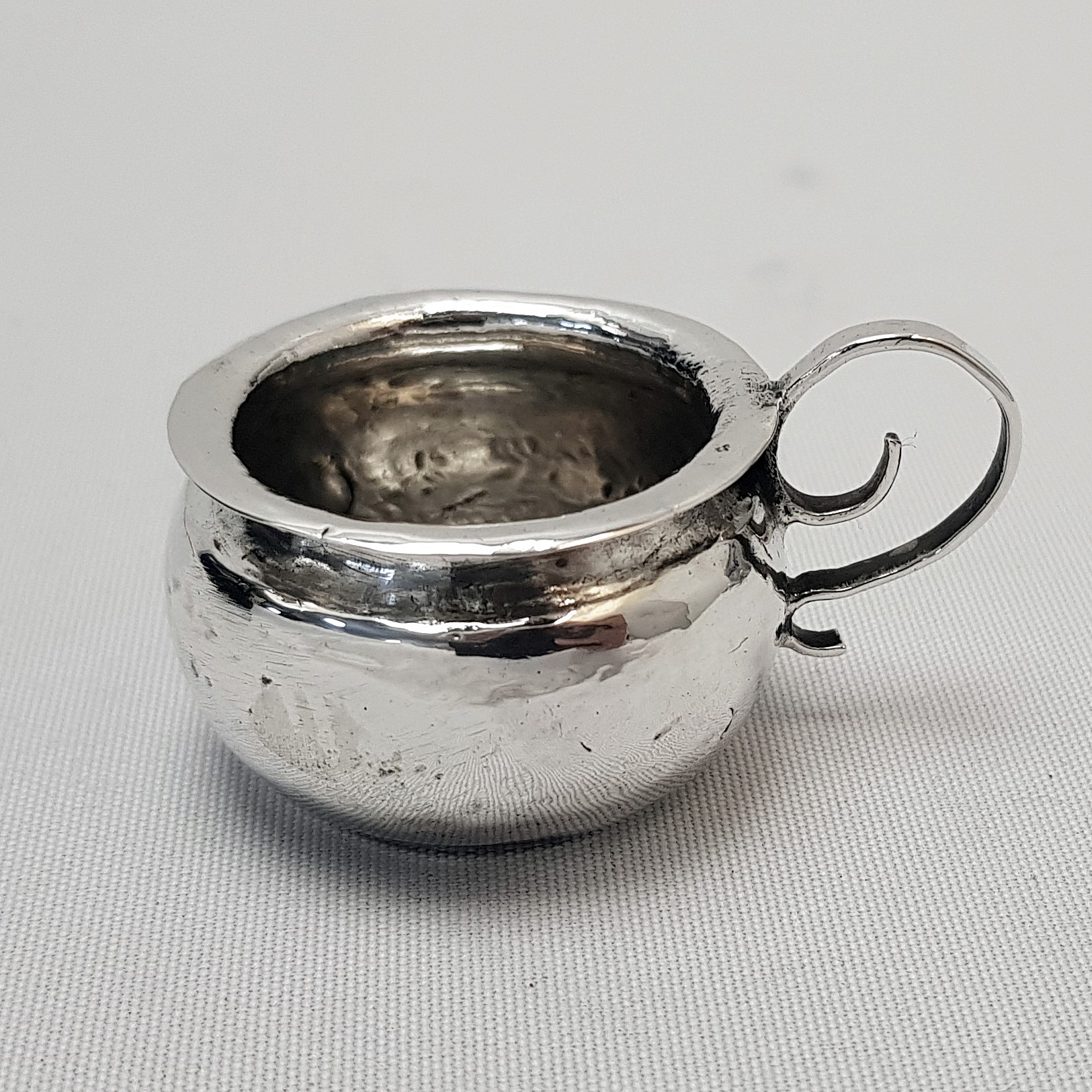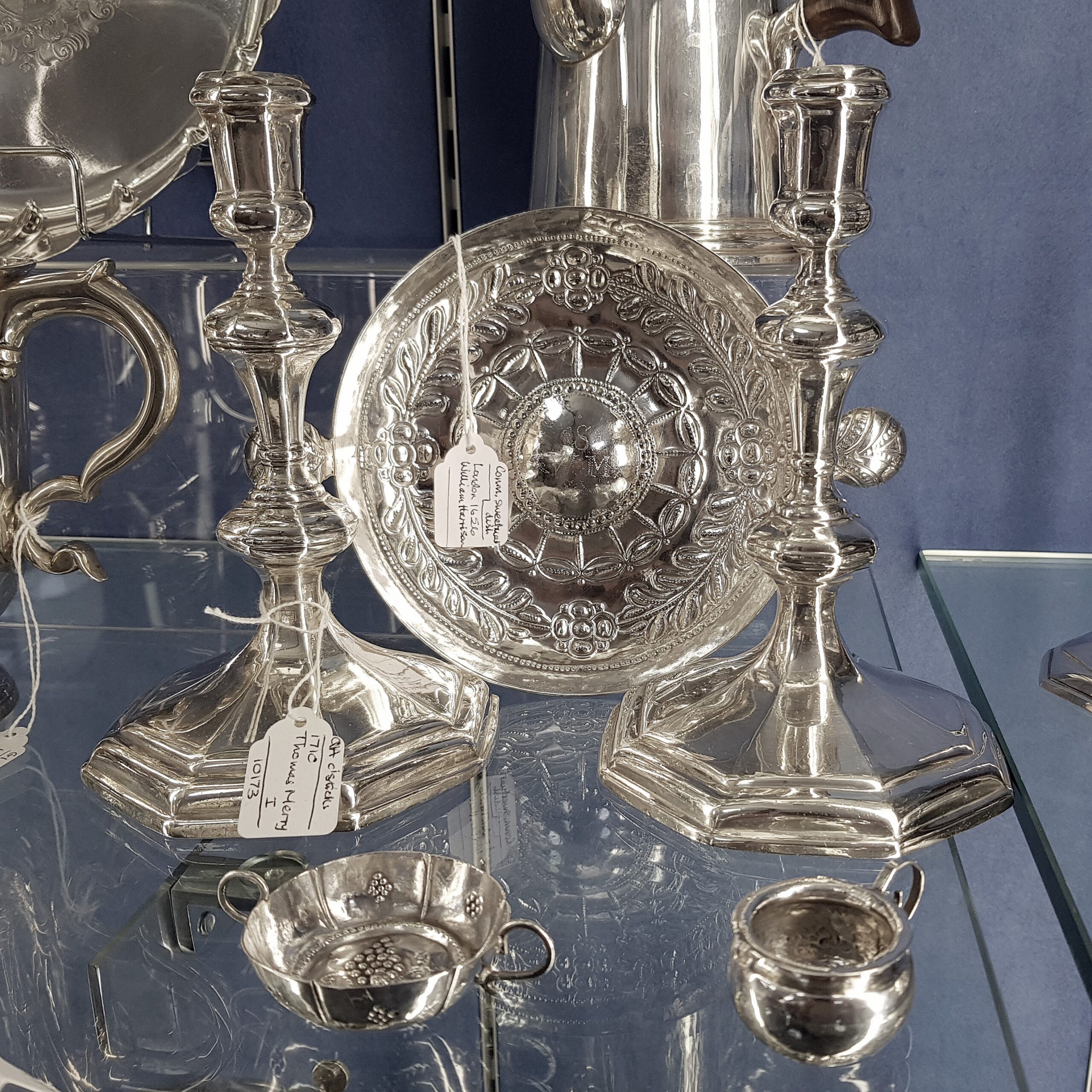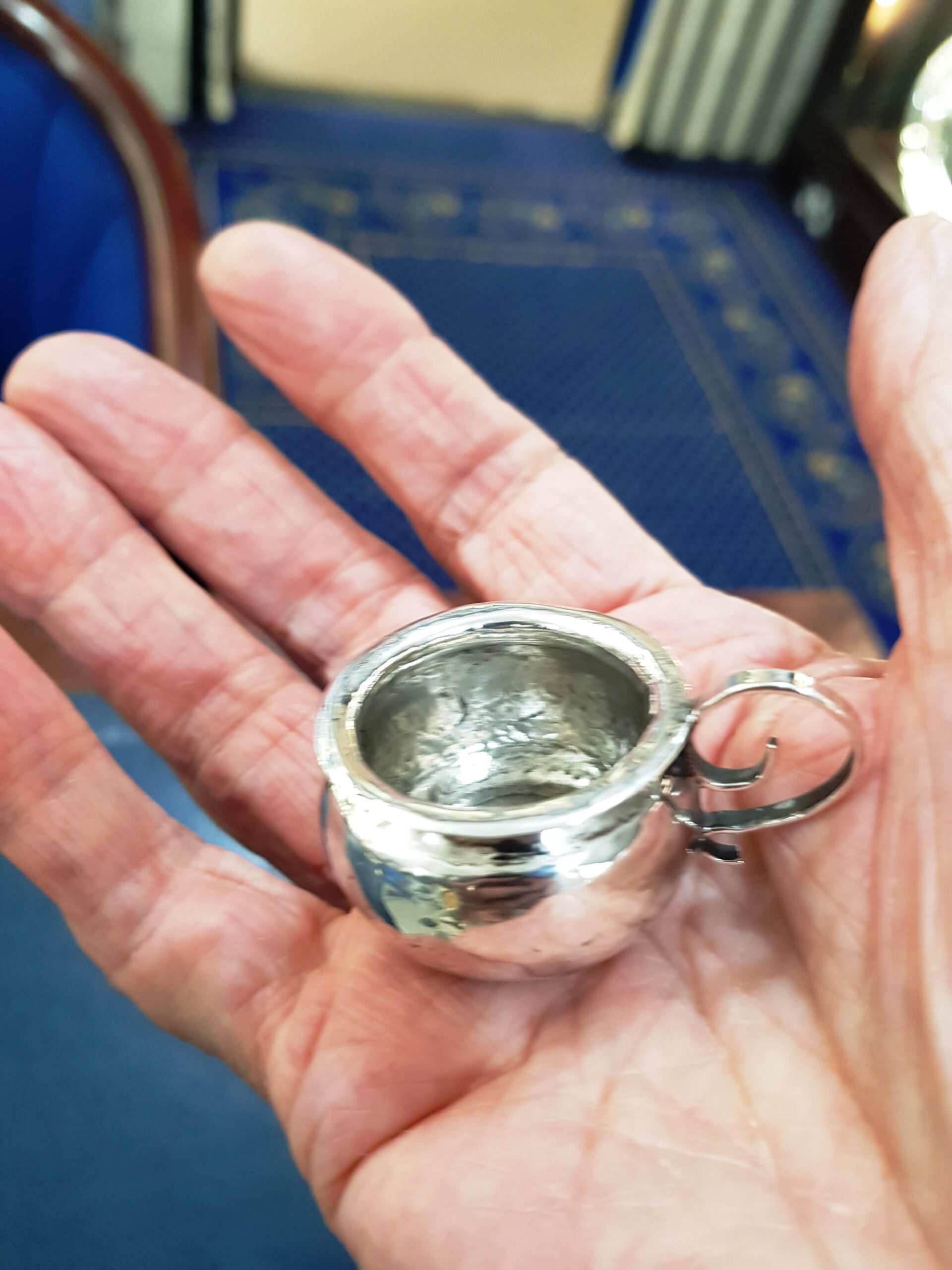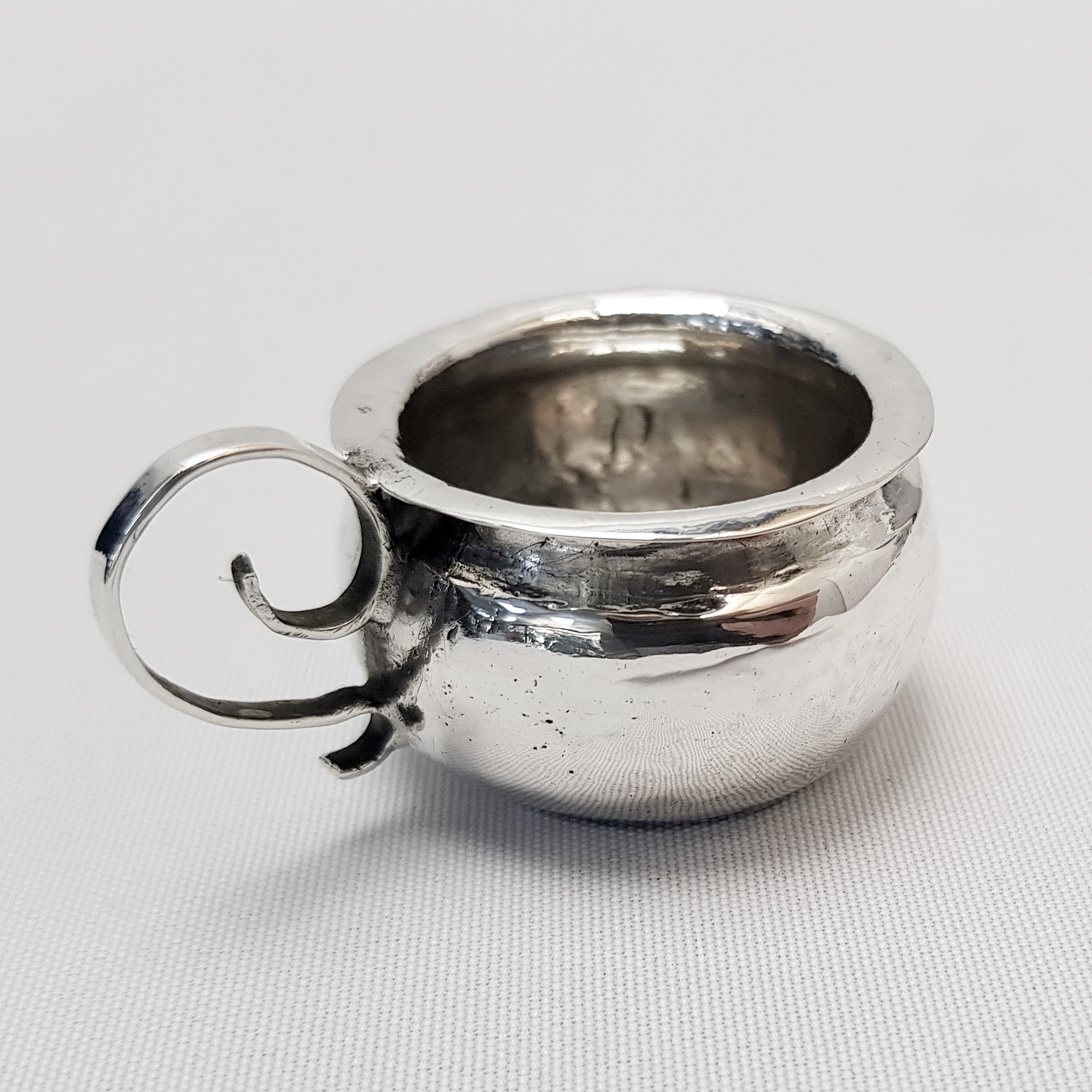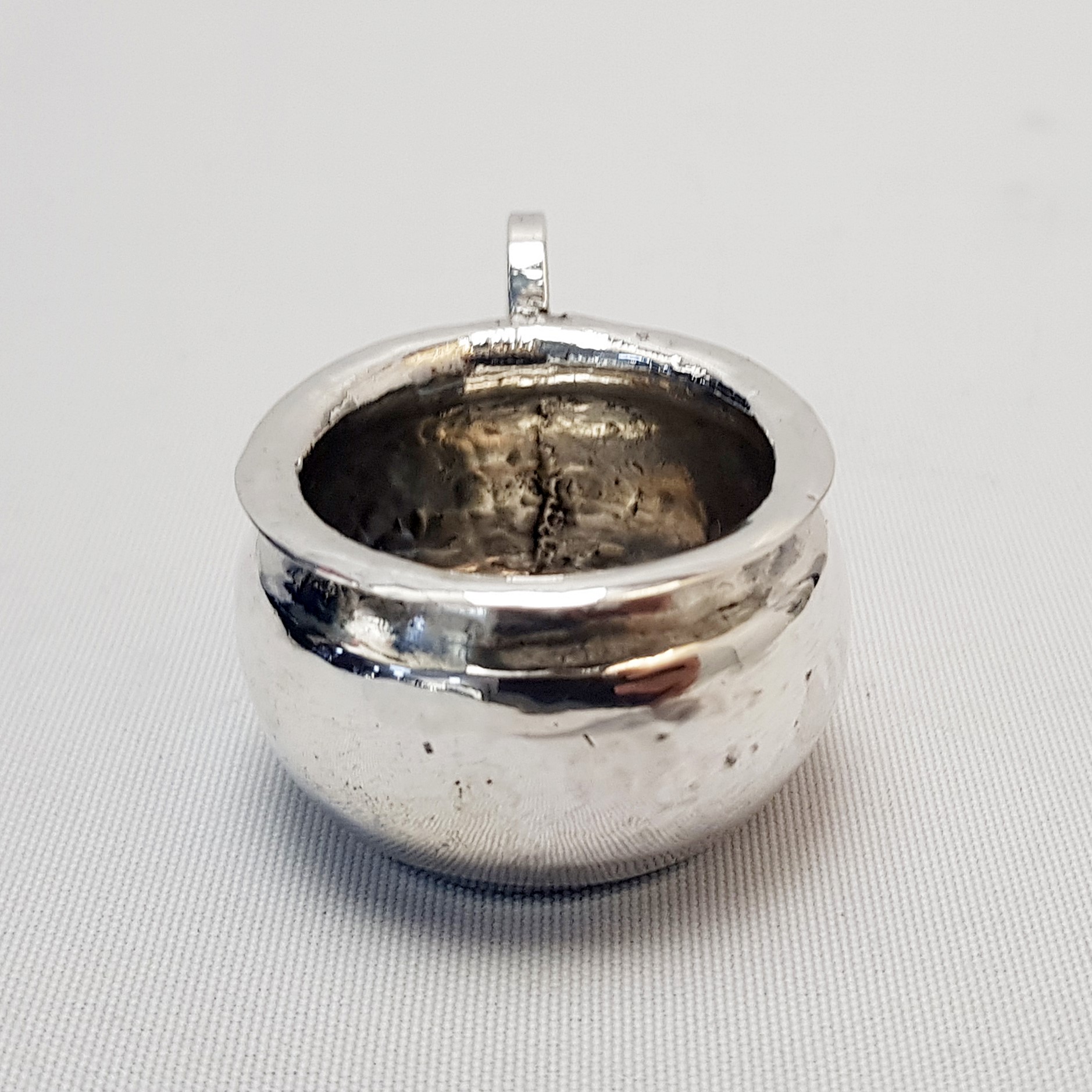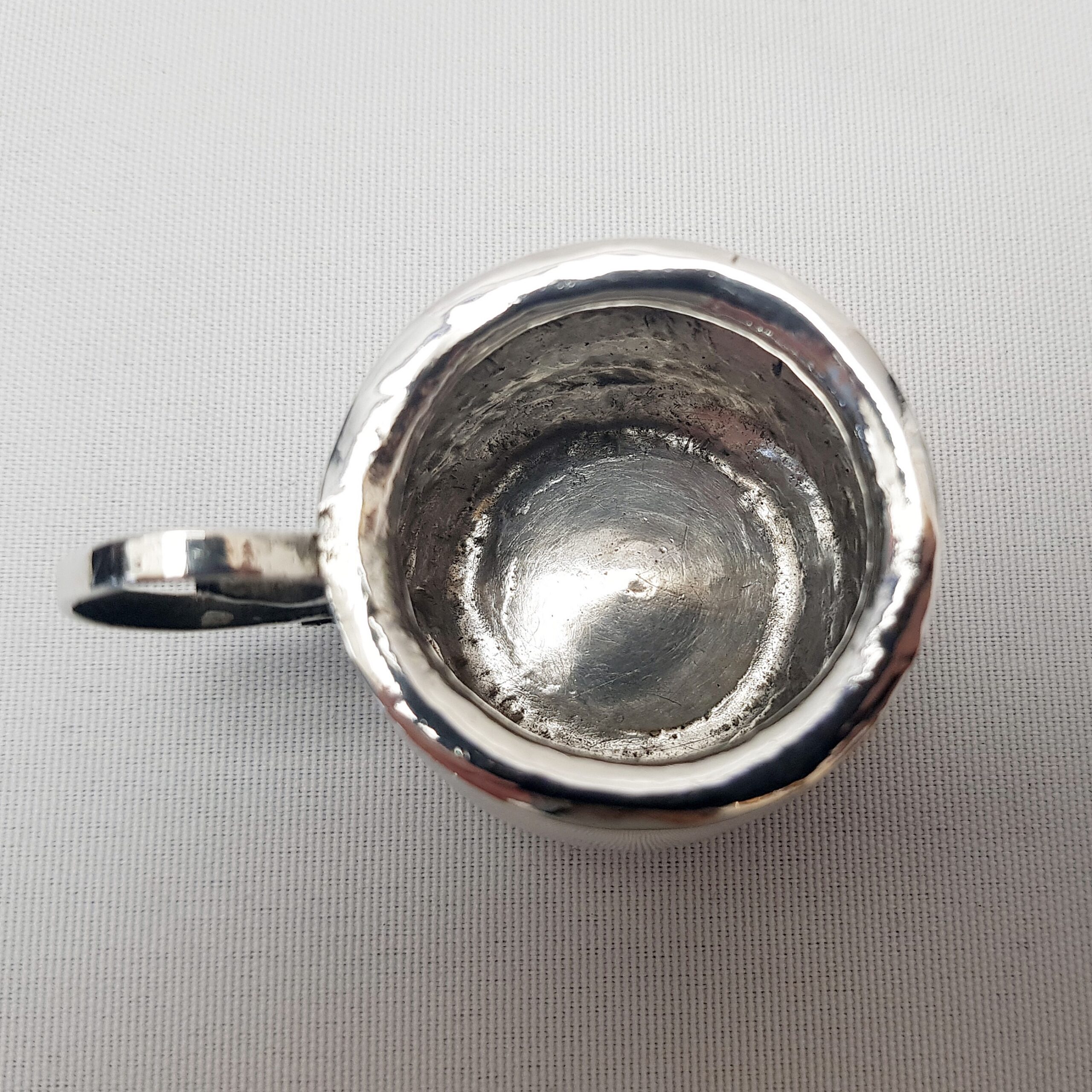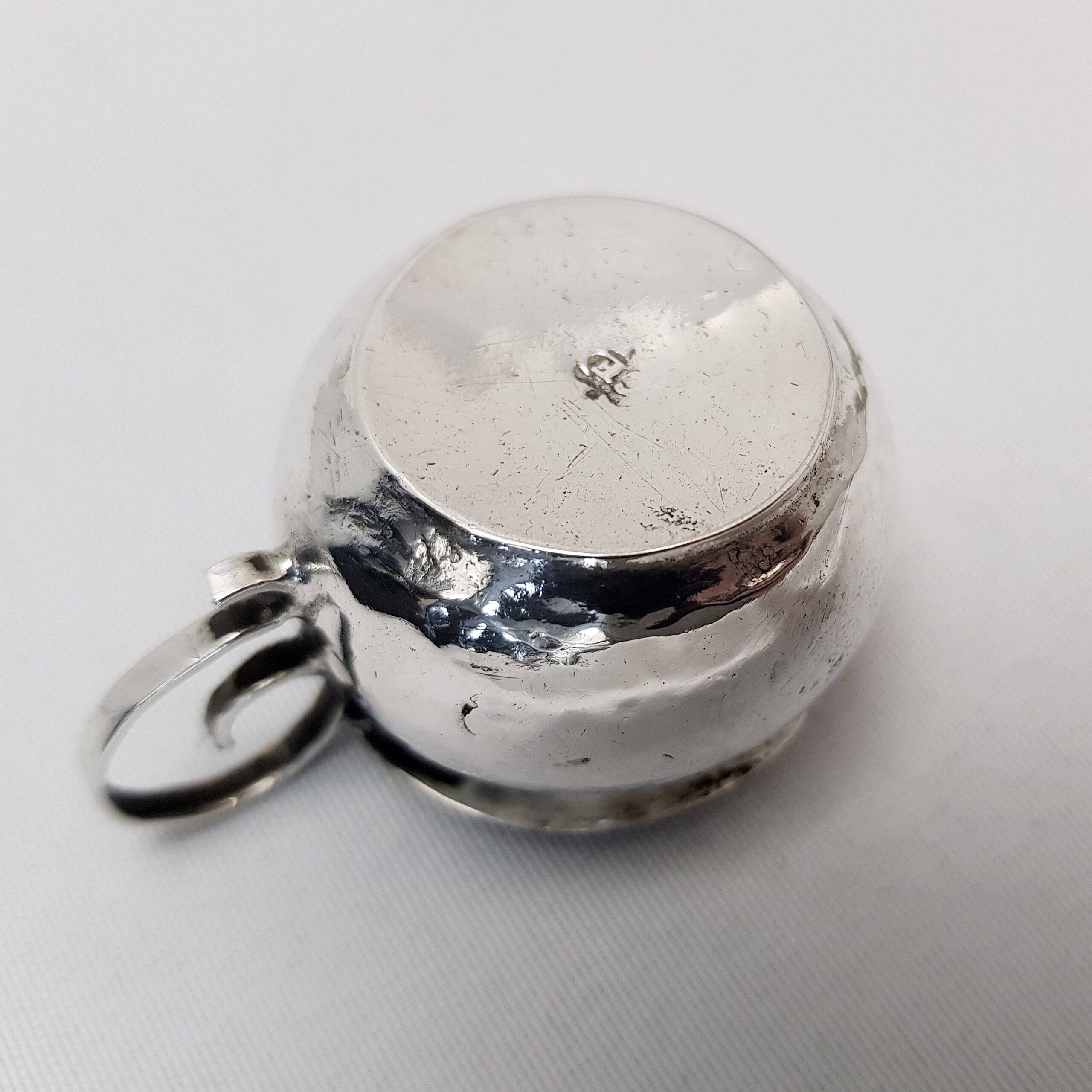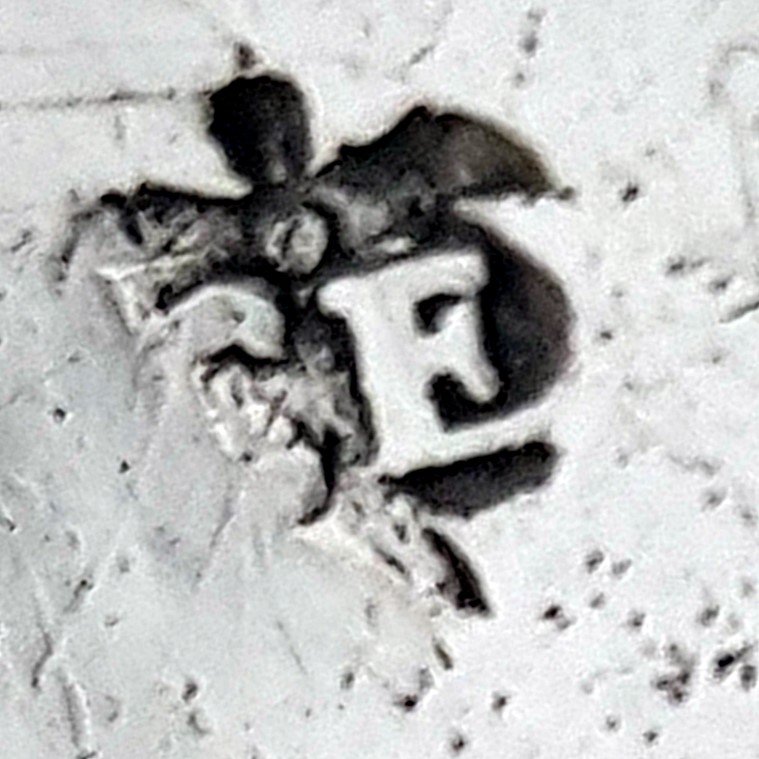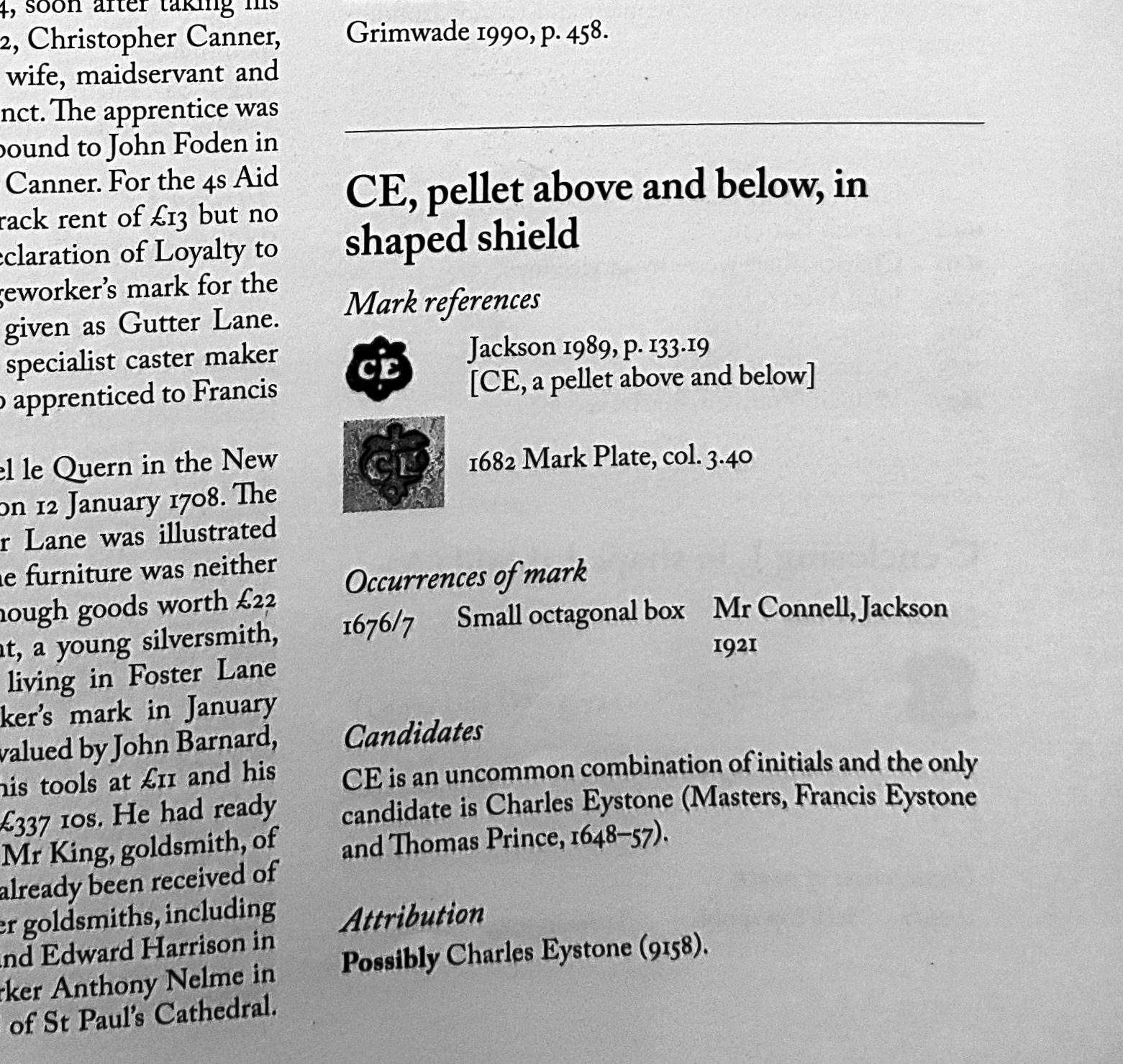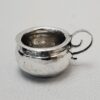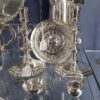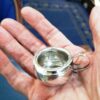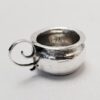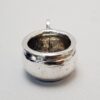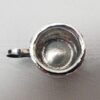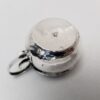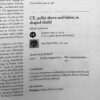William & Mary Antique Silver Miniature Chamber Pot
SOLD
Stock: 10394
Date: Circa 1690
Maker: Charles Eystone
Country: England
A charming little doll's house piece. This rare miniature antique silver potty is made of hand beaten sheet silver with...
Description
Description
A charming little doll’s house piece. This rare miniature antique silver potty is made of hand beaten sheet silver with a simple scrolled handle. It dates to the second half of the 1600’s.
Weight 13g, less than half a troy oz.
Spread 4.9cm. Diameter 3.4cm. Height 2.5cm (to top of handle).
London, circa 1690
Maker Charles Eystone.
Sterling silver.
Marks. Stamped underneath with maker’s mark only “CE” for Charles Eystone (worked 1657-c.1703) – attributed by David Mitchell “Silversmiths in Elizabeth & Stuart London” page 254. This is Eystone’s sterling mark registered in 1657 and superseded in 1697 when Britannia Standard silver was introduced. We have catalogued the date of manufacture as circa 1690 but it could well have been made at any time between 1665-1696.
Literature. A chamber pot, or potty, is a container with a handle, usually used as a urinal at night. It is kept in a bedroom under a bed or in a nightstand. During Victorian times, some chamber pots were built into a cabinet with a closeable cover.
Silver toys originated in Europe during the 17th century and were made initially for the children of kings and queens. At that time England was still suffering under Puritanism and it wasn’t until the Restoration of Charles II in 1660 that silver toys were made available in this country. The earliest English silver toys date from 1665 and were made in London; it was uncommon for toys to be made in the provinces. The Dutch were the leading manufacturers of silver toys, their most prolific period being 1725-1750, and by then wealthy royalty, landowners and business men were buying toys for their own pleasure as well as that of their children’s.
Condition
This delightful little pot is in very good condition and displays a light hand beaten finish. Excellent colour. The traces of blobby silver around the handle are in the original manufacture and are due to the mercury silver used at this early date.
Maker Information
Maker: Charles Eystone
Charles Eystone, London silversmith, apprenticed to his brother Francis Eystone for 8 years in 1648, turned over to Thomas Prince. After taking his freedom in 1657 Charles lodged with his brother's former master John Tompkins in Marygold Alley, Strand. He bound 8 apprentices between 1657 and 1677, the last apprentice , William Warham, became free by service in 1703.
Our Guarantee
Customer satisfaction is our primary concern
All silverware on our website is checked thoroughly prior to offering it for sale and every product listing contains a condition report and details of the silver hallmarks.
All items offered on our website include:
- Free Shipping Worldwide
- Tracked and Insured
- 14 day no quibble money back guarantee
- We are accredited members of LAPADA and conform to their strict professional standards
- We dispatch 1-3 days after receiving cleared payments
More detailed information about deliveries, returns and how to pay is available in the Help section at the bottom of this page.
